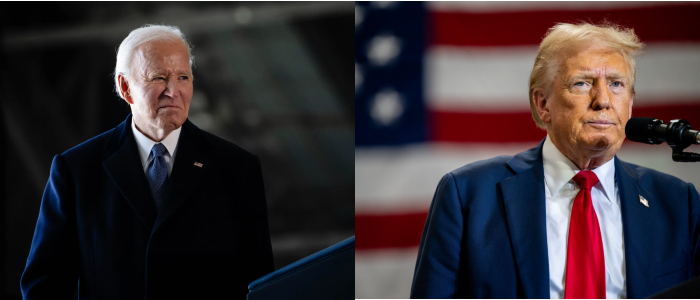'Let the dust from the White House settle first," said former Korean Foreign Minister Song Min-soon in an interview with Korean media. A Southeast Asian figure I met during an Asean Regional Forum (ARF) Experts and Eminent Persons (EEPs) meeting held recently in Kuala Lumpur, Malaysia, expressed a similar sentiment. I feel the same way.
The tariff war instigated by US President Donald Trump is a wake-up call for all of us, including Asean and South Korea. Right now, Mr Trump's unilateral imposition of so-called reciprocal tariffs has set everyone's feet on fire -- everyone is scrambling for survival strategies. But in a few months, once tariff negotiations come to a close, countries will come to their senses.

There will be growing recognition that the international economic environment is undergoing a massive shift, and it is time to ask whether it was truly wise to base growth strategies solely on access to the US market. While it may be unrealistic to devise export strategies that exclude the US, more countries will come to embrace a "US+1" strategy as a means of export diversification. As someone who has long been deeply involved with Asean and has a great love for Southeast Asia, I would like to propose two strategies for Asean, which are informed by this "US+1" strategy and are mindful of Asean's stature as a key trading partner with Korea.
First, Asean must enhance economic integration among its 10 member countries. To do this, Asean must first strengthen its internal foundations and build its own capacity. This starts with reinforcing Asean unity, which prioritises regional interests over national interests, and using that unity as a basis to accelerate regional integration.
Until now, Asean has effectively gone all-in on the US market. But with Mr Trump's tariff measures raising barriers to the US market, Asean must significantly expand intra-regional trade aimed at its 700 million consumers. Over the past 30 years, Asean has pursued economic integration and has largely eliminated tariffs within the region.
However, non-tariff barriers have actually increased, leaving intra-Asean trade stagnant at around 21-23% for over a decade. Compared to intra-regional trade within East Asia, North America, or the EU, intra-Asean trade remains at a relatively low level. Asean has used past economic crises, such as those in 1997 and 2008, as opportunities to further its integration.
This Trump-induced crisis should be seen as another such opportunity. If Asean integration advances, the region will secure an internal Southeast Asian market that serves as more than just a safety net; it would also present an opportunity for Korea. Korean businesses could pursue not only expanded trade with Asean but also a "local production, local consumption" strategy by utilising Southeast Asia's low-cost raw materials and labour to boost local manufacturing, sales, and consumption.
Second, Asean should go beyond its internal market and further expand trade with East Asia, including Korea, China, and Japan. One way to achieve this is to upgrade the Asean+3 Economic and Financial Cooperation, which was established and led by Asean following the 1997 Asian financial crisis, in order to strengthen East Asian economic cooperation. Once the full impact of Mr Trump's tariff shock becomes clearer over the coming months, Asean is likely to initiate concrete steps through the existing Asean+3 economic and financial cooperation frameworks.
These may include expanding intra-regional trade and investment, strengthening manufacturing capabilities, and making the Chiang Mai Initiative Multilateralization (an Asian version of the IMF) more effective. Malaysia, which has previously served as Asean chair four times, has consistently proposed measures to strengthen Asean during times of crisis and is serving as chair for the fifth time this year. I hope it will once again show wisdom in responding to today's geopolitical and geo-economic challenges under Asean centrality.
Thailand, as one of the founding members of Asean and currently serving as the country coordinator for Asean-Korea Dialogue Relations, is also expected to play a constructive role in further advancing Asean-Korea cooperation. Suh Jeong In is a South Korean diplomat and former ambassador to Asean. He is a Research Fellow at the Korea University Asean Centre (KUAC) and a member of the Asean Regional Forum (ARF) and Eminent Persons (EEPS).
.
Politics

US tariff shock upsides for Asean

'Let the dust from the White House settle first," said former Korean Foreign Minister Song Min-soon in an interview with Korean media. A Southeast Asian figure I met during an Asean Regional Forum (ARF) Experts and Eminent Persons (EEPs) meeting held recently in Kuala Lumpur, Malaysia, expressed a similar sentiment.















